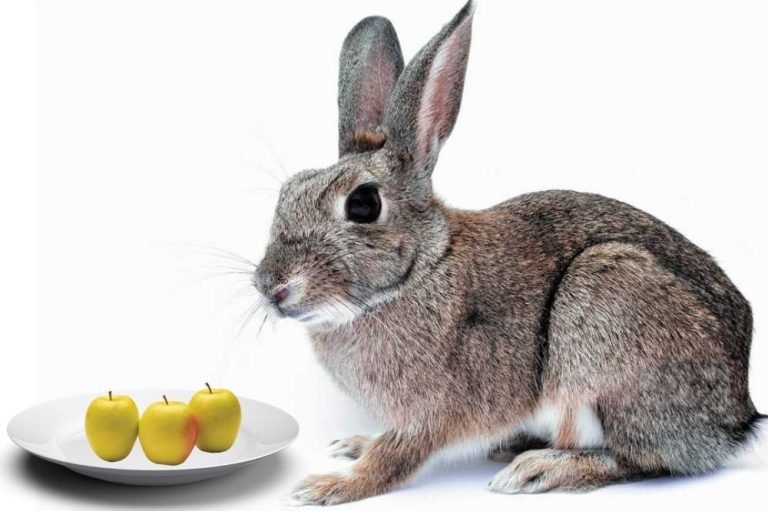What Diseases Can Rabbits Get From Chickens – Stay informed!
Key Takeaways:
- Rabbits can contract diseases from chickens, such as avian influenza and coccidiosis.
- It is important to keep rabbits and chickens separated to prevent transmission of diseases.
- Proper hygiene and biosecurity measures are crucial in maintaining a healthy environment for rabbits and chickens.
- Regular veterinary check-ups and vaccinations can help protect rabbits from potential diseases transmitted by chickens.
Are you a rabbit owner who also happens to have chickens on your property?
If so, you may be wondering about the potential diseases that rabbits can contract from their feathery neighbors.
While rabbits and chickens can coexist peacefully, it is essential to be aware of the various diseases that can be transmitted between them.
In this blog, we will explore the common diseases in rabbits and chickens, discuss the concept of zoonotic diseases, and highlight specific diseases that rabbits can get from chickens.
Stay tuned to learn about preventive measures and how to keep your fluffy friends healthy and happy!
| Disease | Description |
| Rabbit Viral Hemorrhagic Disease (RVHD) | A highly contagious and often fatal viral disease affecting rabbits. It can be transmitted through contact with infected chickens or their droppings. |
| Coccidiosis | A parasitic disease caused by coccidian protozoa. It can affect a wide range of animal species, including rabbits and chickens. Transmission can occur through contaminated feces or direct contact. |
| Pasteurellosis | Also known as snuffles, it is a bacterial infection caused by Pasteurella multocida. Although more common in rabbits, it can occasionally be transmitted from infected chickens. |
Common Diseases in Rabbits
Rabbits can be prone to a variety of common diseases.
Overview of Rabbit Diseases
Rabbits are susceptible to various diseases that can impact their health and well-being.
Some common diseases in rabbits include:
- Rabbit Viral Hemorrhagic Disease (RVHD: This highly contagious and often fatal disease affects the liver and can lead to sudden death. Vaccination is the best preventive measure.
- Rabbit Calicivirus Disease (RCD: Similar to RVHD, RCD is caused by a different strain of the calicivirus. It can cause liver failure and internal bleeding, and vaccination is crucial for prevention.
- Pasteurellosis: This bacterial infection affects the respiratory system, leading to symptoms like sneezing, runny nose, and labored breathing. It can spread to other rabbits in the vicinity.
- Rabbit Upper Respiratory Tract Infection: Commonly caused by bacteria or viruses, this infection affects the nasal cavity, sinuses, and throat, causing symptoms like nasal discharge and difficulty breathing.
- Ear Mites: These tiny parasites can infest a rabbit’s ears, leading to itching, redness, and discomfort. Regular ear cleaning and treatment can help prevent and manage ear mite infections.
Regular veterinary check-ups, a clean living environment, and a balanced diet can go a long way in maintaining a rabbit’s health and preventing these and other diseases.

Contagious and Non-Contagious Diseases in Rabbits
Rabbits can suffer from both contagious and non-contagious diseases.
Contagious diseases can spread from one rabbit to another, such as viral infections like rabbit hemorrhagic disease.
Non-contagious diseases are usually caused by factors like genetics, diet, or environment.
These can include conditions like dental disease or obesity.
Regular veterinary check-ups and a healthy diet can help prevent both types of diseases in rabbits.
Keeping rabbits in clean and stress-free environments also plays a crucial role in maintaining their health and well-being.

Common Diseases in Chickens
Chickens can be susceptible to a variety of common diseases.
Overview of Chicken Diseases
Chicken diseases can be a concern for poultry owners. Some common diseases include:
- Infectious Bronchitis: This viral respiratory disease affects chickens’ respiratory system and can cause reduced egg production and poor growth.
- Newcastle Disease: Another highly contagious virus that affects respiratory, nervous, and digestive systems in chickens. Symptoms include difficulty breathing, tremors, and diarrhea.
- Avian Influenza: A viral infection that can affect both chickens and humans. It causes respiratory issues, reduced egg production, and can be fatal for chickens.
- Marek’s Disease: This viral disease affects the nervous system and causes tumor formation. It can lead to paralysis, weight loss, and death.
Regular vaccination, good hygiene, and proper management practices can help prevent the spread of these diseases in chickens. Consulting a veterinarian is recommended for proper diagnosis and treatment.

Contagious and Non-Contagious Diseases in Chickens
Chickens can suffer from both contagious and non-contagious diseases. Contagious diseases are those that can spread between chickens, such as avian influenza and infectious bronchitis.
These diseases are typically caused by viruses or bacteria and can lead to significant health issues and even death if not properly addressed.
On the other hand, non-contagious diseases are not passed between chickens and are usually caused by factors like poor nutrition, environmental conditions, or genetic predisposition. Examples of non-contagious diseases in chickens include egg binding and bumblefoot.
Proper care, hygiene, and regular health checks are vital in preventing and managing both types of diseases.
Zoonotic Diseases
Zoonotic diseases are illnesses that can be transmitted between animals and humans.
Definition and Explanation of Zoonotic Diseases
Zoonotic diseases are illnesses that can be transmitted between animals and humans. This means that a disease can pass from one species to another, causing infection and illness.
Common examples of zoonotic diseases include rabies, Lyme disease, and avian influenza.
These diseases can be spread through direct contact with infected animals, through their saliva, urine, or feces, or through vectors such as ticks and mosquitoes. It is important to take precautions when handling animals to reduce the risk of contracting zoonotic diseases.
Zoonotic Diseases from Chickens to Rabbits
Zoonotic diseases are infections that can be transmitted between animals and humans. In the case of chickens and rabbits, there are a few diseases that can be passed from chickens to rabbits.
- Avian influenza (bird flu: Chickens can carry avian influenza viruses, which can infect rabbits and potentially lead to severe respiratory illness.
- Salmonellosis: Salmonella bacteria can be found in the droppings of chickens and rabbits can become infected if they come into contact with contaminated surfaces or food.
- Campylobacteriosis: Similarly, Campylobacter bacteria can be present in chicken droppings and can cause gastrointestinal infections in rabbits.
- Escherichia coli (E. coli infection: Chickens can carry E. coli bacteria, which can cause gastrointestinal illness in rabbits if they consume contaminated water or feed.
- Pasteurellosis: Pasteurella multocida bacteria, commonly found in chickens, can also infect rabbits and lead to respiratory infections.
It’s important to note that while these diseases can be transmitted from chickens to rabbits, proper hygiene and biosecurity measures can help prevent their spread. Regular handwashing, cleaning of cages and equipment, and keeping chickens and rabbits separate can reduce the risk of zoonotic diseases.
Specific Diseases Rabbits Can Get from Chickens
Rabbits can contract specific diseases from chickens, such as Avian Influenza, Pasteurellosis, and Salmonella.
Disease 1: Avian Influenza
Avian influenza, or bird flu, is a highly contagious viral disease that primarily affects birds, including chickens.
However, it can also be transmitted to rabbits and other animals.
This disease can cause respiratory problems, decreased egg production, and even death in infected animals.
To prevent the spread of avian influenza to rabbits, it is important to keep them separate from infected chickens and to practice good biosecurity measures, such as cleaning and disinfecting equipment and keeping new animals isolated for a period of time.
If you suspect avian influenza in your rabbits, consult a veterinarian immediately.
Disease 2: Pasteurellosis
Pasteurellosis is a bacterial infection that rabbits can contract from chickens.
This disease is caused by the bacterium Pasteurella multocida.
It spreads through direct contact with infected animals or through contaminated food and water.
Rabbits can develop symptoms such as respiratory issues, fever, nasal discharge, and abscesses.
The infection can be treated with antibiotics, but it’s important to ensure proper hygiene and preventive measures to minimize the risk of transmission.
Regular veterinary check-ups and isolation of sick animals are crucial to prevent the spread of pasteurellosis.
Disease 3: Salmonella
Salmonella is a disease that rabbits can contract from chickens.
It is caused by a type of bacteria called Salmonella.
Here are some important facts about Salmonella:
- Rabbits can get infected by coming into contact with the feces or contaminated surfaces of chickens that are carriers of Salmonella.
- Symptoms of Salmonella in rabbits can include diarrhea, loss of appetite, lethargy, and dehydration.
- Salmonella can be especially dangerous for young, old, or immunocompromised rabbits.
- It is important to practice good hygiene and keep rabbits and chickens separate to prevent the spread of Salmonella.
- If you suspect your rabbit has Salmonella, it is crucial to seek veterinary care immediately.
Preventive Measures
To prevent the spread of diseases, there are a few key preventive measures you should consider: maintaining good hygiene practices, separating rabbits from chickens, and scheduling regular veterinary check-ups.
Maintaining Good Hygiene Practices
To maintain good hygiene practices for your rabbits and chickens, it’s important to follow these guidelines:
- Keep their living areas clean: Regularly remove droppings, soiled bedding, and uneaten food to prevent bacterial growth and odors.
- Provide separate feeding and drinking areas: This helps minimize cross-contamination between the two animals and reduces the risk of disease transmission.
- Quarantine new animals: When introducing new rabbits or chickens to your existing flock, keep them separate for a period of time to ensure they are healthy and not carrying any diseases.
- Practice hand hygiene: Always wash your hands thoroughly with soap and water before and after handling your rabbits or chickens to prevent the spread of germs.
- Limit access to wild animals: Wild animals can carry diseases that can be transmitted to your pets, so it’s important to ensure they don’t have access to their living areas.
Separating Rabbits from Chickens
To prevent disease transmission, it’s important to separate rabbits from chickens. Rabbits can catch diseases from chickens, such as coccidiosis and avian influenza.
By keeping them in separate enclosures, you reduce the risk of infection.
Additionally, ensure that their food and water sources are separate as well. Regularly clean and disinfect their living areas to further minimize the chances of disease transmission.
By taking these measures, you can help keep both your rabbits and chickens healthy.
Regular Veterinary Check-ups
Regular veterinary check-ups are essential for the overall health and well-being of your rabbit. During these check-ups, the vet will thoroughly examine your rabbit, monitor their weight, and assess any potential health issues.
They will also provide necessary vaccinations and address any concerns you may have.
Regular check-ups allow early detection and treatment of diseases, ensuring your rabbit stays healthy and preventing any potential complications. Remember, prevention is always better than cure, so make sure to schedule regular veterinary check-ups for your rabbit.
Frequently Asked Questions
Can chickens transmit diseases to rabbits?
Yes, chickens can transmit diseases to rabbits.
Chickens can carry certain bacteria, viruses, and parasites that can infect rabbits.
Some common diseases that rabbits can catch from chickens include coccidiosis, pasteurellosis, and salmonellosis.
It is important to keep chickens in a separate area from rabbits and practice good hygiene to reduce the risk of transmission.
Regular veterinary check-ups and vaccinations for both animals can also help prevent the spread of diseases.
How can I prevent my rabbits from getting diseases from chickens?
To prevent your rabbits from getting diseases from chickens, there are a few key steps you can take:
- Keep them separated: It’s important to ensure that your rabbits and chickens have separate living spaces to prevent cross-contamination.
- Practice good hygiene: Regularly clean and disinfect their living areas to minimize the risk of disease transmission.
- Avoid sharing equipment: Don’t allow the sharing of feeding and watering equipment between rabbits and chickens.
- Control pests: Implement measures to control pests like rodents and flies, as they can carry diseases that can affect both rabbits and chickens.
- Quarantine new animals: If you introduce new rabbits or chickens to your existing group, make sure to quarantine them first to prevent the spread of any potential diseases.
By taking these preventative measures, you can greatly reduce the risk of your rabbits contracting diseases from chickens.
What are the signs and symptoms of disease transmission from chickens to rabbits?
When it comes to disease transmission from chickens to rabbits, it’s important to be aware of the signs and symptoms.
Some common indications of disease transmission include respiratory issues, such as coughing, sneezing, and difficulty breathing.
Skin infections and lesions can also be observed, as well as diarrhea and changes in appetite.
If you notice any of these symptoms in your rabbit, it’s crucial to seek veterinary assistance promptly to ensure proper diagnosis and treatment.
Final Verdict
It is important to be aware of the potential diseases that rabbits can contract from chickens.
Avian influenza, pasteurellosis, and salmonella are among the most common diseases that can be transmitted from chickens to rabbits.
Implementing preventive measures such as maintaining good hygiene practices, separating rabbits from chickens, and regular veterinary check-ups can significantly reduce the risk of disease transmission.
By taking these precautions, rabbit owners can ensure the health and well-being of their pets.
Stay informed, stay proactive, and keep your rabbits safe from any potential health risks.







